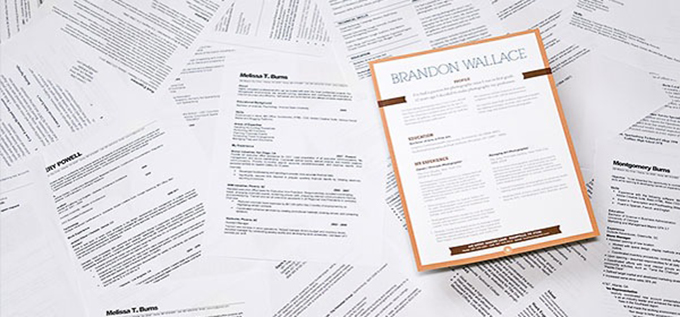
Before settling into my career as a professional college essay advisor and part-time acrobat (one of those things might not be true), I was pretty much a professional job searcher. Pinballing between the worlds of advertising, television promotion, educational marketing and freelance writing, my ability to revise my resume was continuously tested. Over the course of trying on half a dozen professions, I learned a few things about how to paint a compelling picture of myself in a page or less, but the most important aspect of resume refinement was always summarized in my head as a playful twist on an old adage: Dress your resume for the job you want. No, that doesn’t mean lie. It doesn’t even mean stretch the truth. What it means is, highlight the experience that is most relevant to the job listing at hand. Maybe cinch or trim some of the experience that isn’t. When you tailor your resume in all the right places, it is easy for employers to recognize your strengths and see you as a member of their organization. But how exactly do you dress your resume for success? Behold, my closet full of tips and tricks:
Customize, customize, customize. Especially at the beginning of your higher academic and professional career, when the opportunities you pursue can be quite varied and the discovery of a new passion for computer programming or a hunch that the world of marketing might be where you truly excel can change your professional trajectory, it’s worth considering the content of your resume as it relates to the opportunity at your doorstep. Can you adjust some of your descriptions to make them more obviously relevant to the job at hand? Maybe you want to move your social media experience from last year’s stint at an indie record company to the top of your description. Drawing attention to the experiences that will most likely get you hired seems like common sense, but so few people make these modifications that it can really make a difference when it comes to getting noticed by a potential employer.
Use action verbs. You didn’t “make sure children at the pool were safe,” you “implemented procedures to ensure children’s safety. You weren’t “assigned five students to mentor” you “mentored a group of five students.” Deliver the impression that you are a strong candidate from the start of every bullet point. And make sure the language you use is varied. You might have “spearheaded” many projects in your time at a past position, or as the leader of a club, but try to diversity the language you use to express your responsibilities.
Showcase measurable results. Pay attention to measurable metrics and play with their presentation. How many Twitter followers did the company whose social media accounts you’re handling have before you started a job? How many do they have now? Is it a number that sounds more impressive when spelled out (“the account attracted 3,000 new Twitter followers while under my management”), or as a percentage of growth, for example (“I increased the company’s Twitter following by 200 percent”). Did a team you were on at an ad agency win an award while you were there? Now you can mention that you were part of an “award-winning” team. Give a potential employer something to wrap his or her head around.
Update, update, update. Keep notes and update your resume constantly. Don’t wait until you’re applying for another job or internship to write up the details of the position you have today. Did you just finish a major project or help your boss complete a major assignment? Write it down. Keep a running journal of work-related accomplishments and/or update your resume in real time. You’d be surprised how hard it is to recall the details of any given position months or even weeks after your time there is over and you’ve moved onto your next formative experience.
BONUS TIP! Believe you’re good enough (and then some). How does a high school junior, or even a high school senior or college freshman prove his or her worth with just a few work experiences under their belts? It’s simple. You carefully cultivate your qualifications in your resume, write a highly specific cover letter demonstrating your interest in the position, and take a chance. Of course you want to be well-equipped for the job you’re applying to, but it is also highly unlikely you will know how to tackle every single new task thrown at you in a new environment. Have faith in yourself and your ability to learn on the fly and reach for the stars. If you’re not aiming for something that feels a little bit out of your reach, you’re shooting too low. And if you use the tips above, yours could easily be the best dressed resume in the room.
